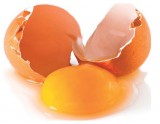Find out what goes on in Sue Martin’s classroom, Teaching Award winner 2010…
TP: What’s your favourite science lesson
SM: It’s hard, because I have so many! But one that always proves popular with the children is ‘parachuting eggs’. It works very well within various topics – but let’s say we’re doing forces. We’ll already have discussed some of the basic principles, so I’ll start by recapping what we’ve discovered so far. Then I show the children an egg…and of course, there’s an instant buzz of excitement, because they all know how fragile eggs are, and sense the imminent risk. I ask the pupils what they think might happen if I throw it, or drop it. And then I demonstrate, to show I absolutely mean business! At that point, I set a challenge – how could we reduce the impact of the forces working on a falling or thrown egg?
TP: Is this a practical challenge?
SM: Oh, certainly. I divide the class into small groups – three or four pupils in each – and give each team a range of materials (bubble wrap, foam, carrier bags, string, sellotape etc). I like to throw in odd things too, like dried spaghetti, because if you give them interesting materials, the children tend to be more creative, and that’s what gets the thought processes working. Once they’ve come up with a plan, they get the egg. We draw a face on it, and make a rule that the features have to remain exposed (this rules out simply bundling it up with so much bubble wrap that it could survive anything!). After a fixed amount of time, we test the various methods.
 TP: It sounds like it could get messy…
TP: It sounds like it could get messy…
SM: Of course – and that’s why the children love it so much (and are so thoroughly engaged)! One of the key points is not to give the groups so much material that they are all bound to succeed. This doesn’t mean that those who end up with a broken egg should feel a failure, though – we always talk about how important it can be in science to test ‘to destruction’, in order to understand fully the principles involved. Sometimes I’ll give marks for ‘creative design’, regardless of whether or not the egg makes it in one piece.
TP: You mentioned that this lesson works within various topics – Can you give us another example?
SM: Yes – if you’re talking about air resistance, then it’s fun and useful to get the class experimenting with various sizes and designs of parachutes. An upstairs window is ideal for testing the ‘chutes – and you can add to the challenge by chalking a target on the ground below, and giving extra points for landing near the centre!
Sue Martin is Deputy Headteacher at Talbot House Preparatory School, Bournemouth; and author of Fizz, Bubble, POP! (TTS, £14.99)
You used to teach at secondary level – How are you finding life at primary school?
Sue Martin: I love it! That’s not to say I didn’t enjoy secondary, because I did; but I enjoy the wonder of younger children – there’s a whole other sense of excitement – throughout KS1 and 2. Yes, it involves a different mode of communication – but then, as a teacher, you will always be faced with a range of abilities; it’s part of the job to adjust your approach accordingly. The fact that I had young children when I started teaching primary definitely helped me to pitch my lessons appropriately… but it’s certainly been a learning curve!
Have you always been passionate about teaching?
SM: I have never considered any other career – right from the age of four when I first walked into the classroom, I knew what I wanted to do and where I wanted to be. I really was born to teach, and consider myself lucky that I am able to earn my living this way!
The enthusiasm of the children! Listen to the media and you’d think there’s not a lot of science going on across the educational spectrum, but things have changed. The science we’re teaching now is wonderful. It captures pupils’ imaginations, and that’s what we need.
I have a great job – and really, there’s very little I would complain about. I suppose I’m lucky, in that I am not restricted by the National Curriculum or constrained by fixed targets; perhaps there is still too much cumbersome paperwork in the system generally. I don’t object to testing and assessment, but it should be about what is relevant at that time.
Use the bottle-flipping craze to create good school behaviour, not bad
Behaviour Management
